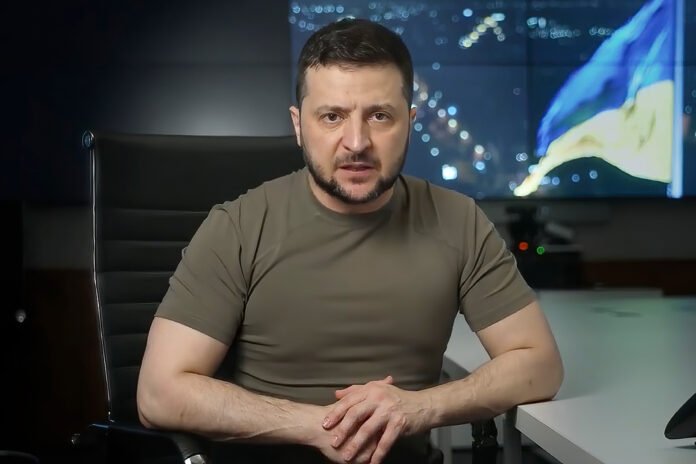
Ukraine has raised the prospect of extending an invitation to Russia for participation in future peace summits aimed at resolving the ongoing conflict in the region. The proposal comes amidst renewed efforts to seek diplomatic solutions to the protracted crisis that has plagued eastern Ukraine for years.
The suggestion was put forth by Ukrainian officials during recent discussions regarding the format of future peace negotiations. While Ukraine has previously been hesitant to include Russia due to its role in supporting separatist forces in eastern Ukraine, there appears to be a willingness to explore all avenues for achieving lasting peace.
The idea of inviting Russia to the negotiating table has sparked mixed reactions both domestically and internationally. Proponents argue that involving all relevant stakeholders is essential for any peace process to be successful, emphasizing the importance of dialogue and compromise in resolving complex geopolitical disputes.
However, critics express concerns about legitimizing Russia’s actions in eastern Ukraine and fear that extending an invitation could undermine Ukraine’s sovereignty and territorial integrity. They stress the need for Russia to first demonstrate a genuine commitment to respecting Ukraine’s borders and ceasing its support for separatist groups before being considered a legitimate partner in peace talks.
The debate surrounding Russia’s potential involvement in future peace summits underscores the complexity of the situation in eastern Ukraine and the challenges inherent in finding a sustainable resolution. Despite ongoing diplomatic efforts, the conflict continues to exact a heavy toll on the civilian population, with thousands of lives lost and significant humanitarian suffering endured.
Against this backdrop, Ukraine’s willingness to entertain the idea of including Russia in future peace negotiations reflects a pragmatic approach to seeking an end to the violence and instability that has plagued the region for far too long. While the road to peace remains fraught with obstacles, the prospect of engaging all relevant parties in constructive dialogue offers a glimmer of hope for a brighter future.
As discussions continue and diplomatic efforts intensify, the international community will be closely monitoring developments in eastern Ukraine, hopeful that meaningful progress can be made towards achieving a durable and inclusive peace settlement. In the meantime, the people of Ukraine continue to endure the hardships of conflict, their aspirations for peace and stability serving as a constant reminder of the urgent need for a resolution to the crisis.
As discussions unfold regarding the potential inclusion of Russia in future peace summits, Ukraine faces a delicate balancing act between pursuing diplomatic avenues for resolution and safeguarding its national interests. The country remains steadfast in its commitment to defending its sovereignty and territorial integrity, while also recognizing the importance of dialogue in resolving the conflict.
At the same time, Russia’s willingness to engage constructively in peace negotiations remains uncertain. Despite previous agreements and ceasefire attempts, sporadic outbreaks of violence and ongoing military maneuvers in the region have cast doubts on Russia’s sincerity in seeking a peaceful resolution.
Against this backdrop, the role of international mediators and observers becomes increasingly critical. Organizations such as the Organization for Security and Co-operation in Europe (OSCE) play a crucial role in monitoring the situation on the ground, facilitating dialogue between the parties involved, and promoting confidence-building measures aimed at de-escalating tensions.
Moreover, the support of key international stakeholders, including the United States, the European Union, and other regional powers, is essential for creating the necessary conditions for meaningful negotiations to take place. These actors can exert diplomatic pressure on all parties to the conflict, encouraging compliance with international law and adherence to ceasefire agreements.
As Ukraine navigates the complexities of the peace process, it remains committed to seeking a resolution that upholds its sovereignty, respects the rights of its citizens, and ensures a peaceful and prosperous future for all Ukrainians. While the road ahead may be challenging, the determination of the Ukrainian people to secure a lasting peace serves as a beacon of hope in the midst of adversity.
